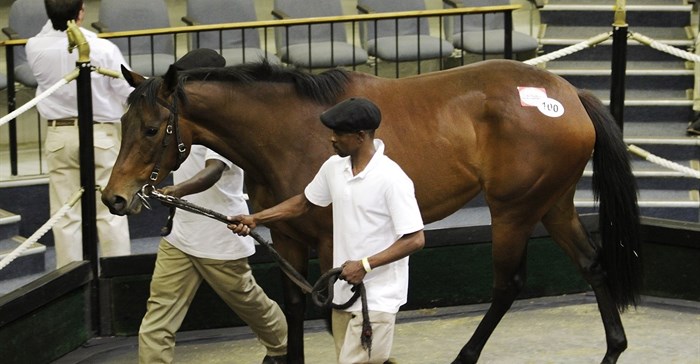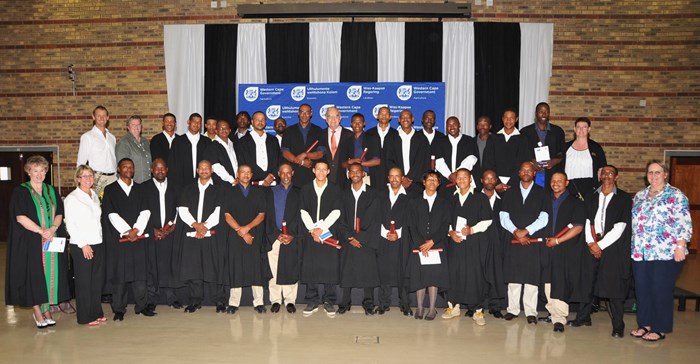
Top stories






More news


Marketing & Media
Ads are coming to AI. Does that really have to be such a bad thing?














For generations, South Africa’s stud farms have produced some of the world’s most celebrated racehorses. Typically purchased at auctions such as those held by Bloodstock South Africa (BSA), the sales arm of the Thoroughbred Breeders’ Association (TBA), horses that have the right pedigree and physical attributes can command prices that reach into the millions.
A fundamental aspect of presenting a high-quality Thoroughbred on auction day, and one that seldom attracts much attention, is the attentive stud farm groom who is responsible for a horse’s care until it is ready for sale. Grooms act as caretakers, nurturers, and guides to young thoroughbreds and if a foal shows any sign of injury or a change in attitude, the groom is usually the first to notice. To a large extent, they shoulder the responsibility of rearing a healthy, strong racehorse capable of commanding a top price at auction.
Stud farms are usually situated in rural areas and are an important source of employment to local communities. However, low levels of education amongst rural farm workers can make it difficult for grooms to fully understand the complexities of the stud farm business and thus to rise up in the stud farm industry, despite the important role they play.
To address this shortfall, a partnership between the Cape Breeders Club, Elsenburg Agricultural College, Singayenza Economic Development Practitioners, headed by Samantha Sharkey, and the Graham & Rhona Beck Skills Centre, was formed to develop a skills training programme specific to the racehorse breeding industry. The training consists of three modules: the Professional Groom’s Certificate, the Professional Head Groom’s Certificate and the Yard Manager’s Certificate.
The modules each consist of two components: the first is a technical skills component that aims to upskill the grooms and provide them with a more specialised understanding of their field. The second is a business skills component that focusses on teaching the basics of business management, with an emphasis on the thoroughbred breeding industry. This component was developed to equip grooms with the knowledge required to pursue success in their own commercial endeavors.
The initiative has received a huge amount of support from the thoroughbred breeding community. Recently the TBA – the representative body for Thoroughbred Breeders in South Africa – subsidised part of the tuition costs for training sessions carried out in KwaZulu-Natal and the body has further pledged its support to the initiative on an on-going basis.
Comments Susan Rowett, TBA chairperson: “Hard working, knowledgeable stud farm grooms bring up healthy, competitive racehorses and are an asset to the industry. The TBA is delighted to assist in their upliftment and any efforts to make the industry more accessible to previously disadvantaged members of our community.”
An additional initiative has recently started to gain momentum as an add-on to the groom’s training. Now grooms that have successfully completed the first two training modules are eligible to join a groom’s cooperative. Each five-member cooperative will apply for seed funding from the Department of Trade and Industry to pursue their own business endeavors and put their new skills to the test.

This might involve investing in their own, or a share of their own, thoroughbred such as a weanling foal, that can be auctioned on for profit upon reaching maturity, as well as racehorses, breeding stallions or broodmares. They could also choose to invest their capital elsewhere and Singayenza has put considerable effort into researching sustainable SME business opportunities for the collectives.
Singayenza will work closely with the collectives to provide guidance and support, helping them make sound investment and business management decisions that will ensure the on-going success of their enterprises.
Since the initiative’s launch, 63 grooms have qualified for their Professional Groom’s Certificates, 44 of which went on to complete their Professional Head Grooms Certificate, a further 21 of which went on to complete the final Yard Managers Certificate. It is hoped that these grooms will enjoy a greater degree of satisfaction and success in their working lives and potentially go on to pursue lucrative business ventures of their own.